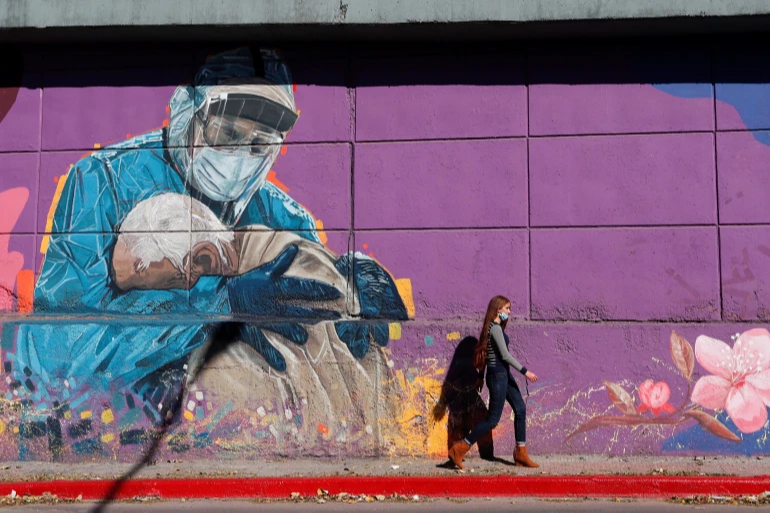
UN urges reform as rich-poor divide widens between nations
United Nations, September 16 (RHC)-- A new report from the United Nations highlights divergent economic recoveries between nations and throws fresh urgency behind warnings that richer nations are not doing enough to help poorer countries from falling further behind as the world recovers from COVID-19 disruptions.
“It’s really frustrating to see how responses to the pandemic have panned out rather disjointedly,” said Inu Manak, an expert in international political economy at the Cato Institute, a libertarian think-tank based in Washington, DC in the United States.
“During the financial crisis, there was a statement of all advanced countries shunning protectionism, but during the pandemic, we saw a doubling down of borders and a turn inwards and a push toward self-reliance rhetoric,” she told Al Jazeera.
The damage from the COVID-19 crisis has exceeded that of the Great Recession of 2007-2009 in most parts of the global economy, but has been particularly draining on the developing world, according to a new report (PDF) from the United Nations Conference on Trade and Development (UNCTAD) released on Wednesday.
The report found that developing countries (excluding China) will, by 2025, be as much as $8 trillion poorer as a consequence of the coronavirus crisis. The total cost of delayed vaccinations – in terms of lost income – will amount to $2.3 trillion, with the developing world shouldering the majority of that bill.
Even assuming no further shocks, a return to the pre-pandemic income trend could take until 2030 – reflecting the weakest growth rate since the end of World War II.
The economic fallout of the pandemic left many developing countries with fewer fiscal resources and higher debt burdens. And for countries on the front line of climate change, this cocktail has the potential of shutting them out of growth and investment for years to come.
“The danger of a lost decade ahead remains a very real one,” Richard Kozul-Wright, UNCTAD’s director of globalisation and development strategies, told Al Jazeera. “And so far, the discussion of reform of the multilateral system, along the lines that followed the financial crisis, has not happened, even though the system has clearly fallen short.”
The Group of 20 (G20) nations’ Debt Service Suspension Initiative, which has extended about $13 billion to eligible developing countries, is “nowhere near to what is needed,” he added.
Much-needed funding for many poorer nations was served up last month when the International Monetary Fund (IMF) approved $650 billion in new Special Drawing Rights – SDRs, the IMF’s reserve currency that can be exchanged for hard currencies like US dollars, and can help struggling nations get their hands on necessary cash.
The G20’s Debt Service Suspension Initiative, which has extended about $13bn to eligible developing countries, is ‘nowhere near to what is needed’ to help those nations as they come out of coronavirus lockdowns, a UN official told Al Jazeera [File: Stringer/Reuters]
But the bulk of the new SDR allocation will accrue to richer nations because the SDRs are distributed according to a country’s IMF quota, which in turn is determined by a nation’s standing in the global economy.
“We will still need debt relief and cancellation on a significant scale if developing countries are to be able to mobilise domestic resources to meet the SDGs [Sustainable Development Goals],” Kozul-Wright told Al Jazeera.
The SDGs are 17 goals – with focuses that include education, health, nutrition and women’s rights – which UN member states have pledged to achieve by 2030. Essentially, it’s the global development blueprint aiming to lift even the least developed countries out of poverty for good.
“Doing so will require reforms to the existing multilateral financial architecture and advanced economies need to talk with developing countries on what that might involve,” Kozul-Wright said.
Forty years of scaled-back government services, growing inequality and impunity for financial and corporate elites had taken a heavy toll on the global economy even before the coronavirus pandemic shut down economies and halted global trade, UNCTAD’s report argues.
Post-lockdown growth has been largely concentrated in North America, which has enjoyed close regional trade linkages, strong fiscal stimulus and monetary accommodation, according to the report.
The total cost of delayed coronavirus vaccinations will amount to an estimated $2.3 trillion, with the developing world shouldering the majority of that bill [File: Siphiwe Sibeko/Reuters]
“We’ve seen places where the pandemic has brought economic collapse much more significantly, for example in the developing world than the developed world,” William Milberg, dean and professor of economics at The New School for Social Research, told Al Jazeera.
“And we’re seeing a recovery, in Europe, maybe in the US, in China, but we’re not seeing that recovery in the developing world.”
This is the 40th anniversary of the UNCTAD annual report, which was first launched in 1981 – when late US President Ronald Reagan was in office. Reagan was a champion of neoliberal economic policies and free markets who had pledged to tame blistering inflation at home. But that localised agenda, said UNCTAD’s Kozul-Wright, had global ramifications.
Taming inflation meant hiking US interest rates, which raised the value of the dollar against other currencies. That made it harder for poorer countries to repay their dollar-denominated debts, ushering in extreme austerity measures that would lead to a “lost decade” of growth and development for nations caught up in the maelstrom.
That brutal cycle of debt and austerity would take hold again during the global financial crisis. “The global financial crisis [of 2007-2009] exposed the dangers of this hyper-globalised system, and while reforms were promised at the G20 and elsewhere, the winners of this system resisted and pushed instead for austerity to adjust the system in their favour,” Kozul-Wright told Al Jazeera.

